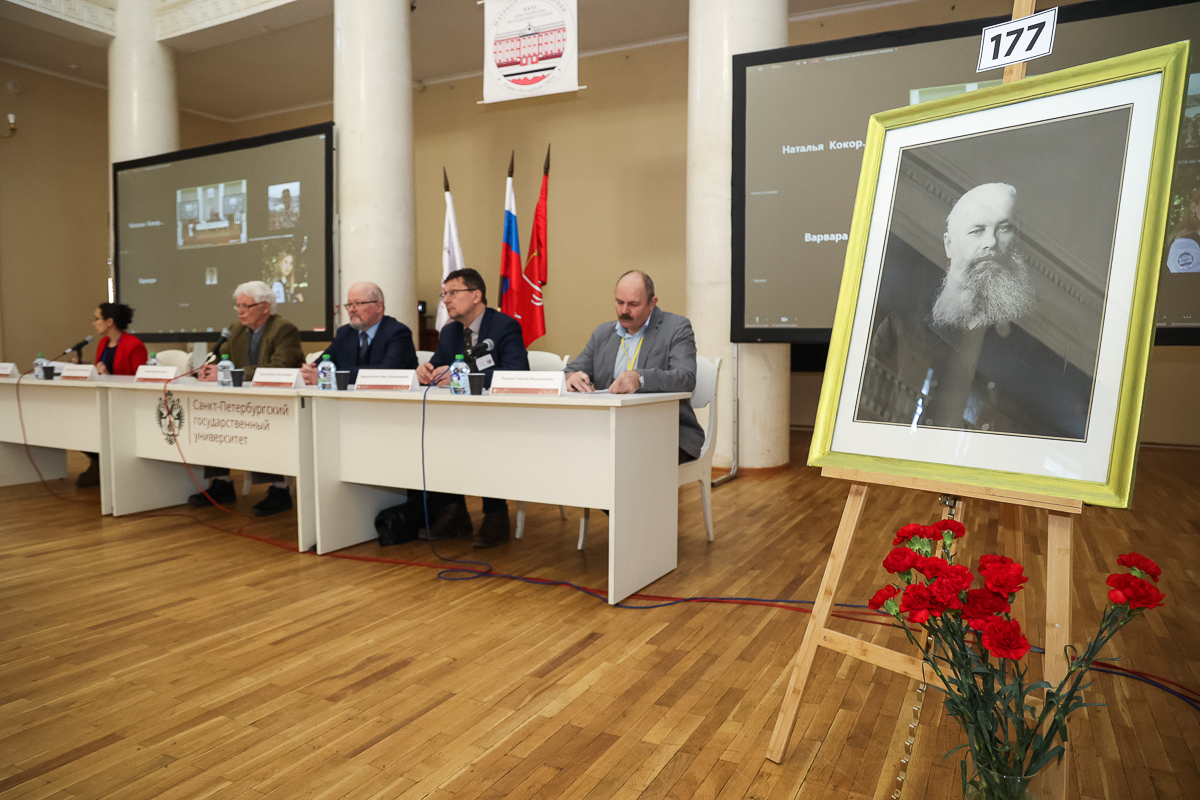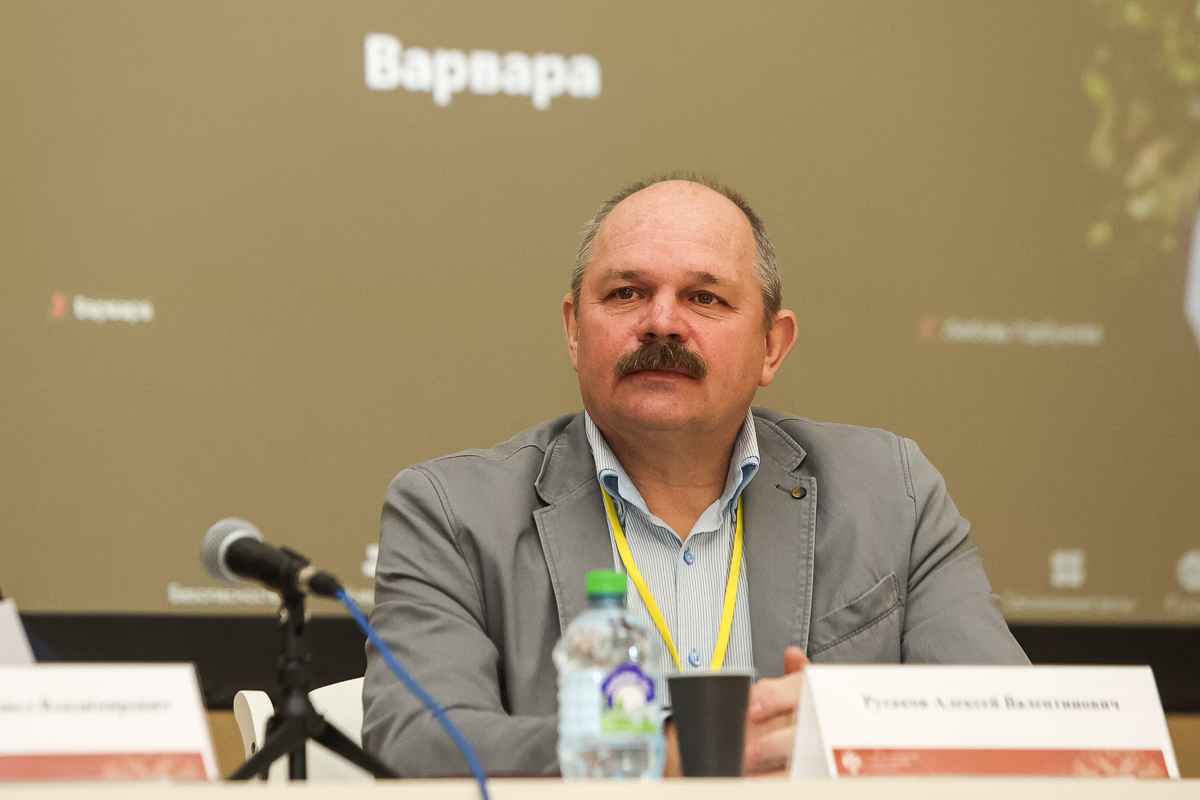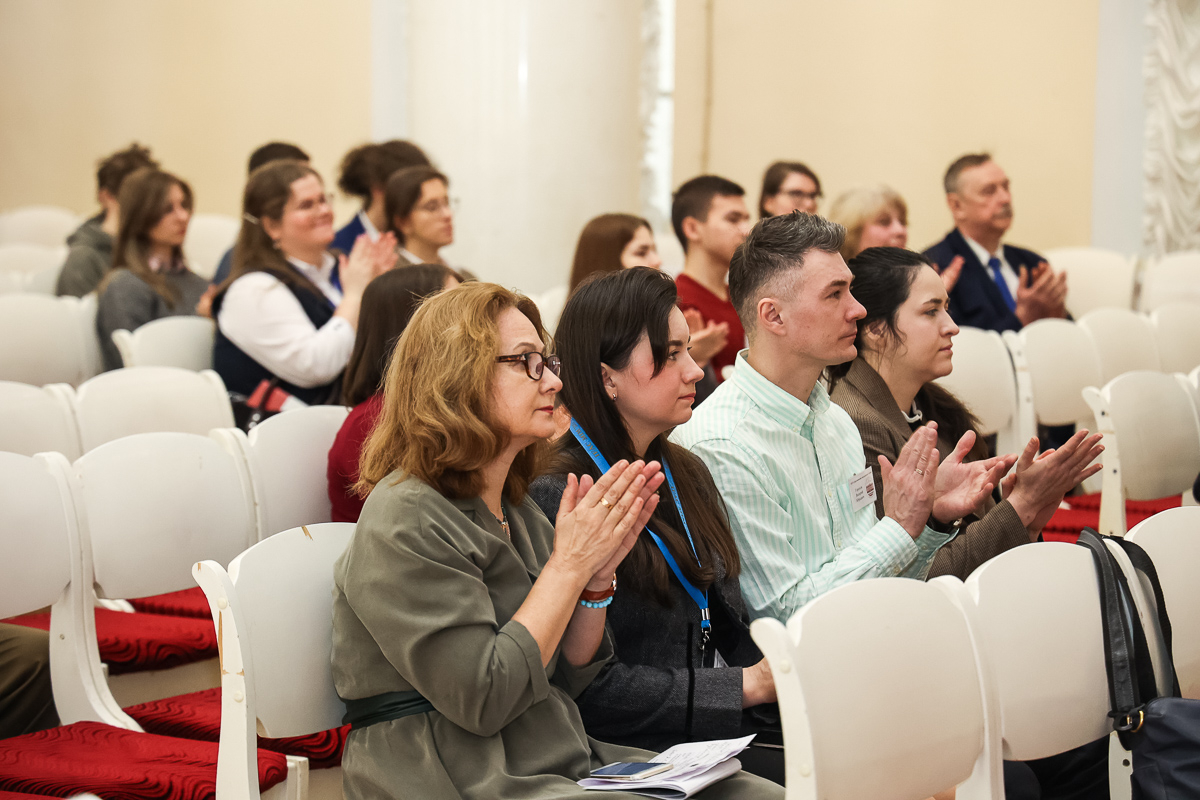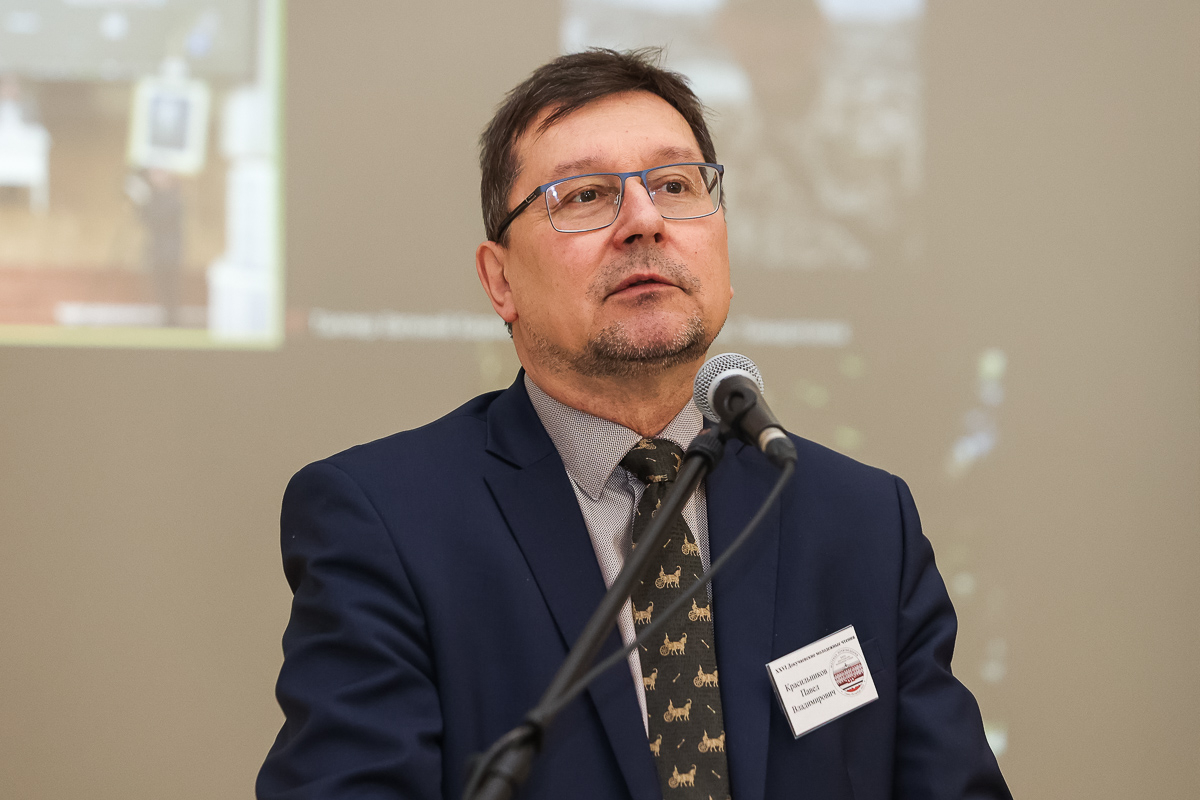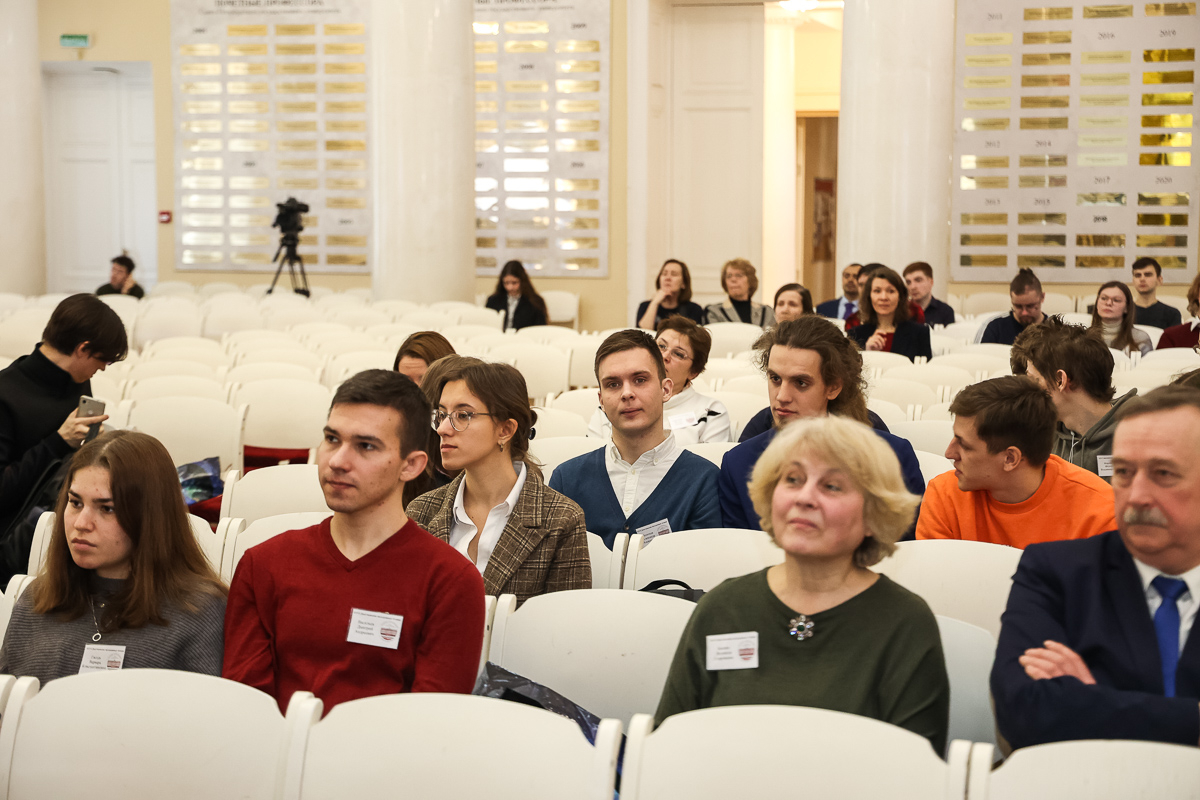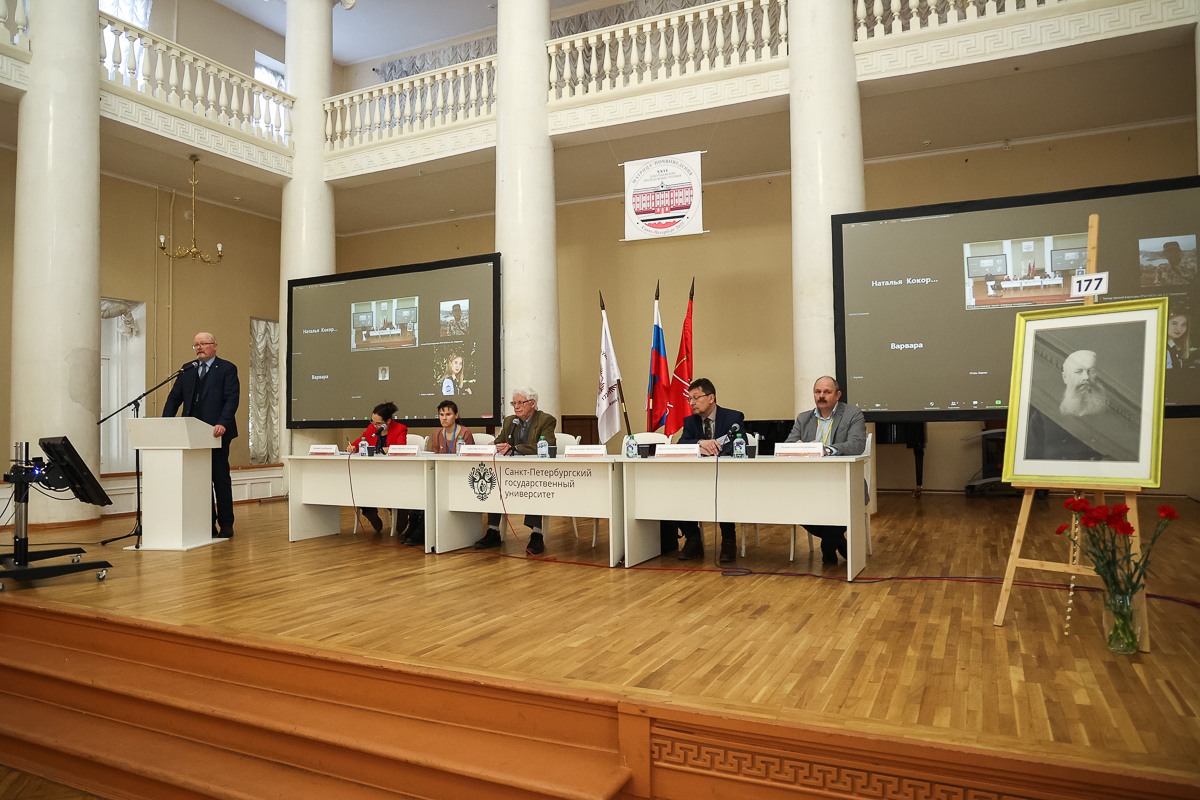Kirill Chistyakov: ‘The Dokuchaev school is not only about soil science, it is also progress in many natural sciences’
St Petersburg University has held the Dokuchaev’s Youth Readings ‘Soil Science Matrix’. This year, the conference marked a milestone in soil science, i.e. its 140th anniversary. In 1883, Vasily Dokuchaev, the founder of the Russian soil science, defended his doctoral thesis at St Petersburg University (then St Petersburg Imperial University).
Kirill Chistyakov, Director of the Institute of Earth Sciences at St Petersburg University and Vice-President of the Russian Geographical Society, delivered a welcoming speech at the opening of the conference.
‘The Dokuchaev’s Youth Readings are an extraordinary phenomenon. You can hardly find a similar youth scientific event that would have such a long history and such an enormous significance throughout its history. The importance of Dokuchaev’s school for Russian natural science can hardly be overestimated. It was a truly revolutionary event. In the global science, Vasily Dokuchaev introduced a special natural body, a special geosphere. We appreciate it and we ought to invest efforts to develop it, because our survival depends on the soil cover. Vasily Dokuchaev proposed an idea of interdisciplinary research in Earth sciences. This interdisciplinary approach is much more efficient than the approaches relating to different branches of knowledge’, said Kirill Chistyakov.
Soil science as a fundamental science originated at St Petersburg Imperial University. Professor Vasily Dokuchaev developed soil science into a new important branch of natural science. Before, it was an empirical science. He developed a doctrine of soil as an independent natural body and discovered the main patterns of its genesis and distribution. For the first time, he developed a system of sustainable land use and gave it a practical application.
‘I am very pleased to speak in the Assembly Hall at the Twelve Collegia building at St Petersburg University. 140 years ago at St Petersburg University, Vasily Dokuchaev defended his doctoral thesis “The Russian chernozem”. It all started at St Petersburg University. At the University, Vasily Dokuchaev organised his first expeditions to develop the methodology of the field description of the soil profile. Soil assessment and soil cartography were also developed at the University. The University introduced everything that developed the basis of our science,’ said Professor Pavel Krasilnikov, President of the V.V. Dokuchaev Soil Science Society, Acting Dean of the Faculty of Soil Science at Lomonosov Moscow State University and Corresponding Member of the Russian Academy of Sciences.
The plenary session of the Dokuchaev’s Youth Readings marked the 100th anniversary of the Department of Soil Science and Soil Ecology at St Petersburg University. The Department was established in 1922 on the basis of the Department of Agronomy. Today, the Department is part of the Dokuchaev Scientific and Pedagogical School of Fundamental Soil Science. The Department has state-of-the-art infrastructure and equipment to prepare soil scientists at three levels of education: bachelor’s, master’s, and doctoral studies.
The conference brought together early-career researchers from various Russian cities. Among them are: Moscow, St Petersburg, Rostov-on-Don, Apatity, Perm, Irkutsk, Nalchik, Kazan, Astrakhan, Krasnoyarsk, Petrozavodsk, Mytishchi, Tomsk, Tula, Belgorod, and Suzdal. There were also representatives from foreign countries, namely from Türkiye and Uzbekistan.
Of special importance in the Dokuchaev’s Youth Readings is a traditional school section ‘Young researcher. Start in science’. The youngest participants from St Petersburg and other cities of Russia presented the results of their first research endeavours. They focused on the most pressing problems of soil science.
‘It is incredibly pleasing that the 26th Dokuchaev’s Youth Readings brought together schoolchildren, bachelor’s students, master’s students, doctoral students, specialist’s students, and young scientists. The theme of this year “Soil Science Matrix” covers many areas. Apart from the soil itself (in all its diversity), the conference focused on the palaeosol, geographical, geological, ecological and other areas. This is what unites everyone who, in one way or another, deals with soil, i.e. the fourth kingdom of nature,’ said Aleksei Rusakov, Professor and Head of the Department of Soil Science and Soil Ecology at St Petersburg University.


